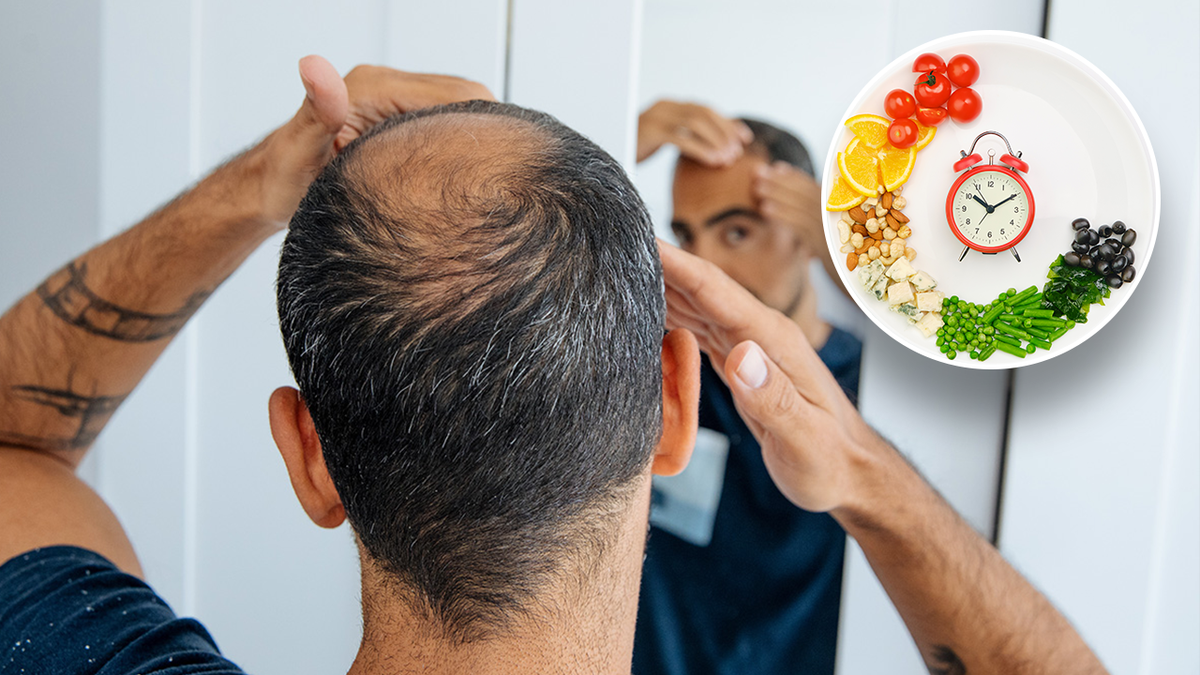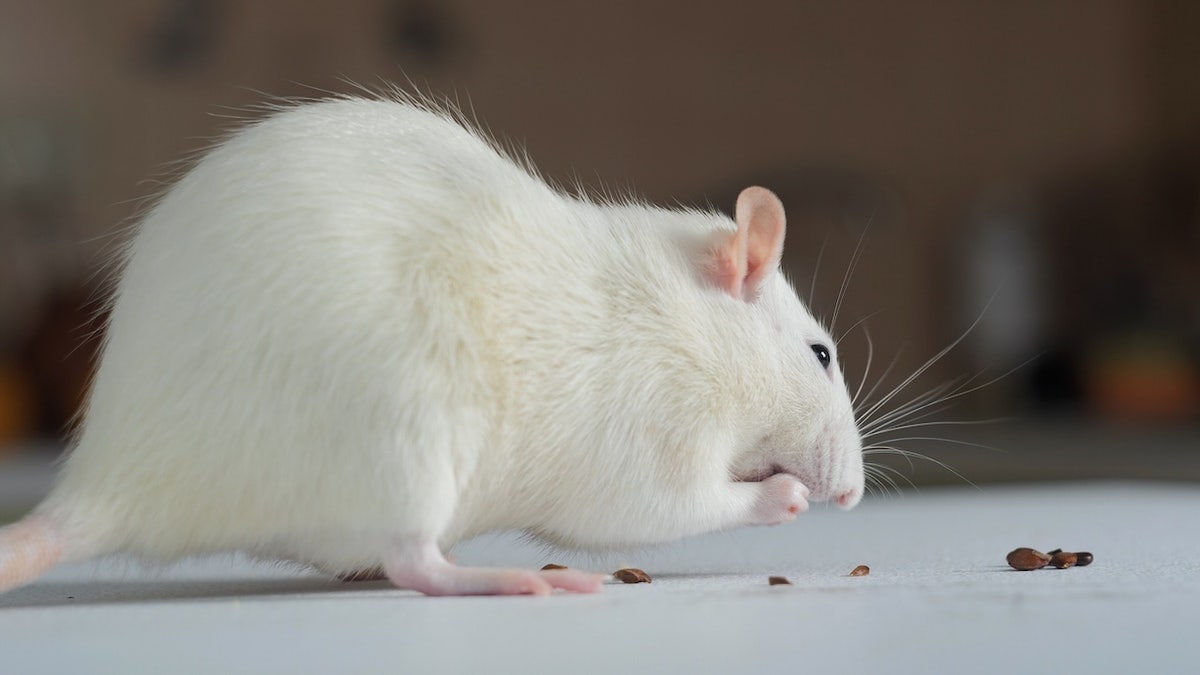If your hair is growing slower than you’d like, your diet could have something to do with it.
A new study from Westlake University in Zhejiang, China, found that intermittent fasting can significantly reduce hair growth in humans.
The intermittent fasting method involves a shortened eating period throughout the day, most commonly an eight-hour eating window and 16 hours of fasting.
THESE 5 TREATMENTS FOR BALDNESS AND HAIR LOSS COULD HELP ENSURE A HEALTHY SCALP, EXPERTS SAY
Research has shown that intermittent fasting can help weight loss and managementheart health and memory, according to Johns Hopkins Medicine.
But researchers found that it could have unwanted side effects, like Chinese study said that some intermittent fasting diets have been shown to “inhibit hair follicle regeneration” in mice.

Researchers found that intermittent fasting reduced hair growth in mice and humans. (iStock)
The mice analyzed in the study were shaved and followed different intermittent fasting programs.
The group that followed a normal eating schedule grew their hair back after 30 days, according to an analysis by BBC Science Focus. The group that fasted showed only partial hair growth after 96 days.
The study, published in the journal Cell by Cell Press, concluded that prolonged fasting activates the adrenal glands, which then shut down tissue regeneration during “periods of unstable nutrient supply.”
A cure for male hair loss could be found in sugar stored in the body, study suggests
This is also due to the stress exerted on hair follicle stem cells, reported the BBC. These follicles “died” in the intermittent fasting group after long periods of fasting.
Although the study found that the mice’s metabolic health improved and hair regeneration was slower, the effects might not be the same in humans, who have a slower metabolic rate and models different hair growth rates.

Slowed hair regeneration is due to metabolic changes related to intermittent fasting that cause stress on the hair follicles. (iStock)
In a follow-up human clinical trialResearchers studied 49 healthy young adults who followed a diet of 18 hours of fasting per day.
This timing has been found to reduce hair growth by 18% on average.
Dr. Brendan Camp, MDCS Dermatology board-certified dermatologist, based in New York, reiterated how the “small animal study” suggests that fasting may affect the growth cycle of hair follicles.
CLICK HERE TO SUBSCRIBE TO OUR HEALTH NEWSLETTER
“The metabolic changes associated with fasting may impose a type of stress on hair growth that slows it down,” Camp, who was not involved in the research, told Fox News Digital.
“It is hypothesized that the oxidative stress that develops during fasting – when the body switches from metabolism to fats instead of glucose – hinders hair growth.”

In a human clinical trial, 18 hours of fasting per day reduced hair growth by 18% on average. (iStock)
To promote hair growth, Camp suggests making a few changes to your diet, with an emphasis on vitamins and nutrients such as iron, selenium, zinc, biotin, folate and vitamin D.
“[This] can prevent nutritional deficiencies that can potentially contribute to hair loss,” he said.
For more health stories, visit www.foxnews/health
The dermatologist warned that “crash” or fad diets, or even illnesses that cause significant weight loss in a short period of time, can trigger the development of a condition called “telogen effluvium.”
“In this condition, a significant amount of hair loss occurs in response to some type of health eventwhether it’s a physical illness or a very stressful life event,” he said.
CLICK HERE TO GET THE FOX NEWS APP
The study was supported by the National Natural Science Foundation of China, Zhejiang Key R&D Program, Westlake Laboratory of Life Sciences and Biomedicine, Research Center for Future Industries (RCIF) and the Center for Synthetic Biology and Integrated Bioengineering. at Westlake University, according to a press release.
Fox News Digital has contacted the study authors for comment.









